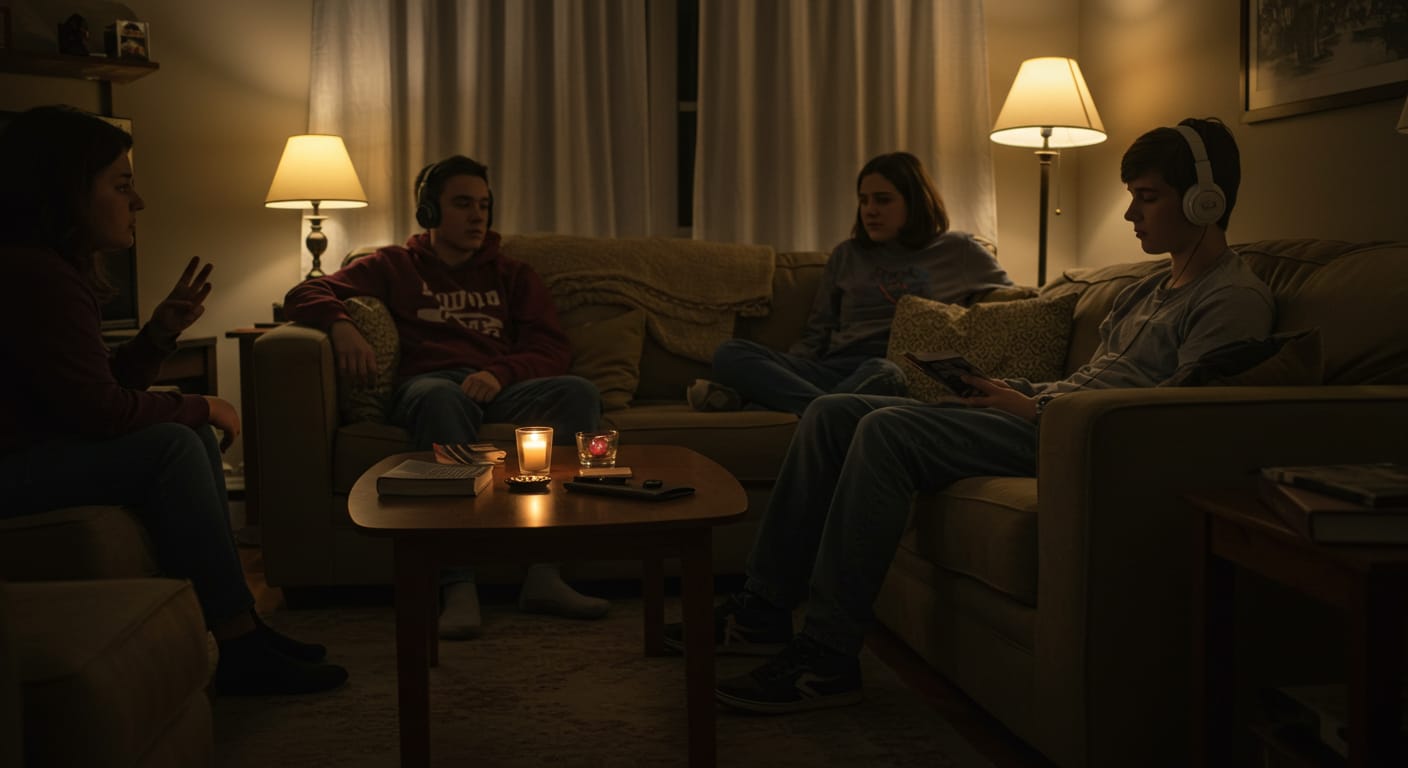The Family Table Isn’t Always Easy
Family gatherings can be beautiful and chaotic—sometimes both at once. Whether it’s a holiday, a reunion, or just a special meal, the media loves to paint a picture of joy, laughter, and togetherness. But for many families, especially those dealing with depression, these occasions can feel more like emotional landmines than celebrations.
“I don’t know half of you half as well as I should like; and I like less than half of you half as well as you deserve.”
— J.R.R. Tolkien
This quote may feel a little too honest for comfort—but for some teens with depression, it’s painfully accurate.
The Hidden Weight of Depression at Gatherings
Teens struggling with depression often dread family events—not because they don’t love their relatives, but because the pressure to be “on” can feel overwhelming.
From small talk to sensory overload, from unsolicited advice to awkward questions—the stress can start weeks before the gathering even begins.
Step One: Know What You’re Dealing With
As a parent, understanding your child’s depression is critical. It shows up in different ways for different teens:
-
Withdrawal from social interaction
-
Irritability or frustration
-
Physical fatigue or sleep issues
-
Difficulty engaging in conversations
Spend some time learning how your teen experiences depression, so you can support them with empathy and wisdom—not just worry.
To Tell or Not to Tell the Family
One big decision: Should you tell other family members about your teen’s condition?
Sometimes, a bit of education can go a long way—especially when it comes to avoiding thoughtless comments like:
-
“You’re just shy.”
-
“You just need to smile more!”
-
“What do you have to be depressed about?”
But before you decide, talk to your teen. This is their story—not yours. Ask if they’re comfortable with you sharing it, and with whom. Protecting their privacy can be as empowering as advocating on their behalf.
Include Your Teen in the Planning
Empower your teen by letting them help plan for the day:
-
What time will you arrive and leave?
-
Who will they be sitting near?
-
Will they have a “timeout” option?
-
Can they bring a comfort item (book, headphones, journal)?
Create an “escape plan” together: a safe word or a look that says, “I need to take a break.”
This doesn’t mean they’re being rude or antisocial—it’s about managing mental energy.
Encouragement Without Pressure
Encourage social interaction, but don’t force it. Let them know it’s okay to:
-
Take breaks
-
Step outside
-
Sit quietly in another room
-
Skip certain parts of the event
Sometimes just knowing they have permission to leave the table or skip the group photo is enough to keep their anxiety at bay.
Remember Your Own Needs, Too
Supporting a teen with depression is no small task—especially at high-stress events. But here’s the truth: You matter, too.
Make space for your own self-care:
-
Take deep breaths when needed
-
Step outside for fresh air
-
Delegate tasks so you’re not overwhelmed
-
Set boundaries with difficult family members
Being present for your teen is noble, but you cannot pour from an empty cup. Take care of yourself so you can be there for them.
Final Word: It’s Not About Perfection—It’s About Preparation
Family gatherings may never be perfect. But with the right preparation, communication, and care, they don’t have to be dreaded events. They can be opportunities for connection, healing, and even joy.
Start the conversation early. Plan together. Listen. And most of all, remind your teen—and yourself—that you’re in this together.


